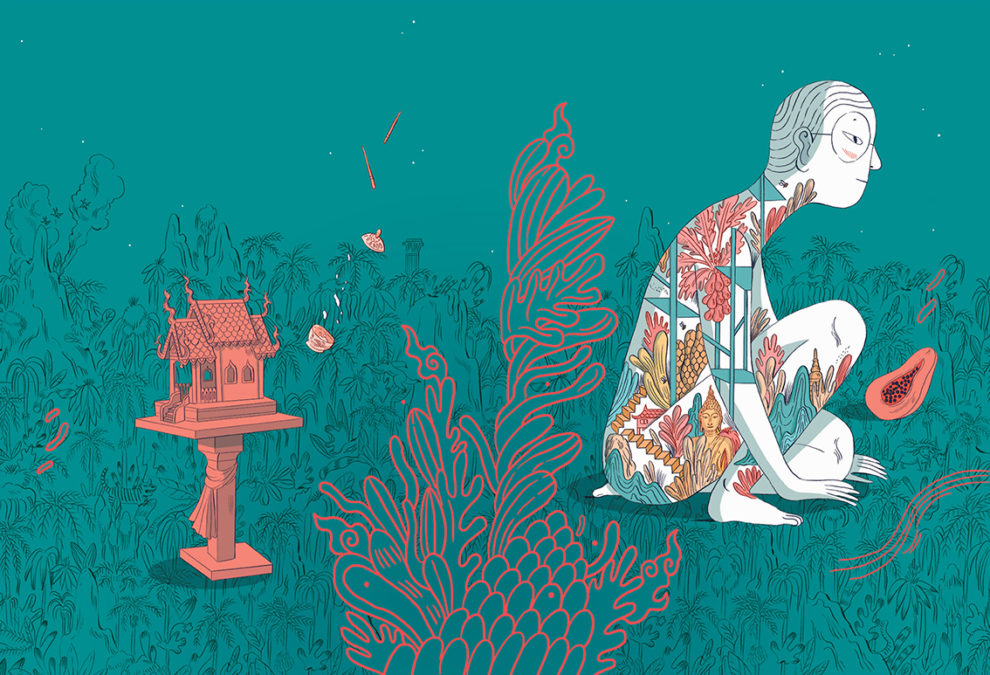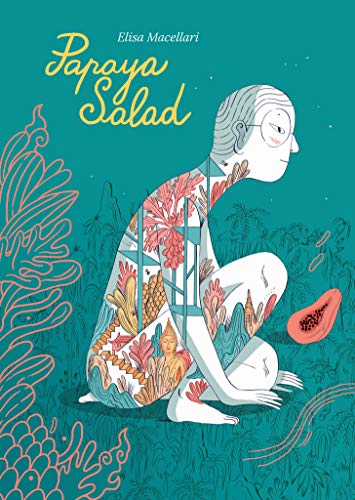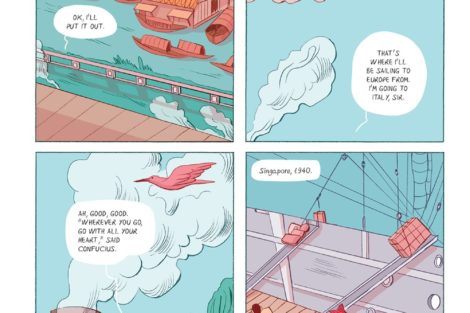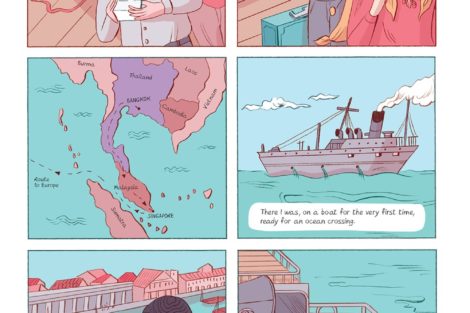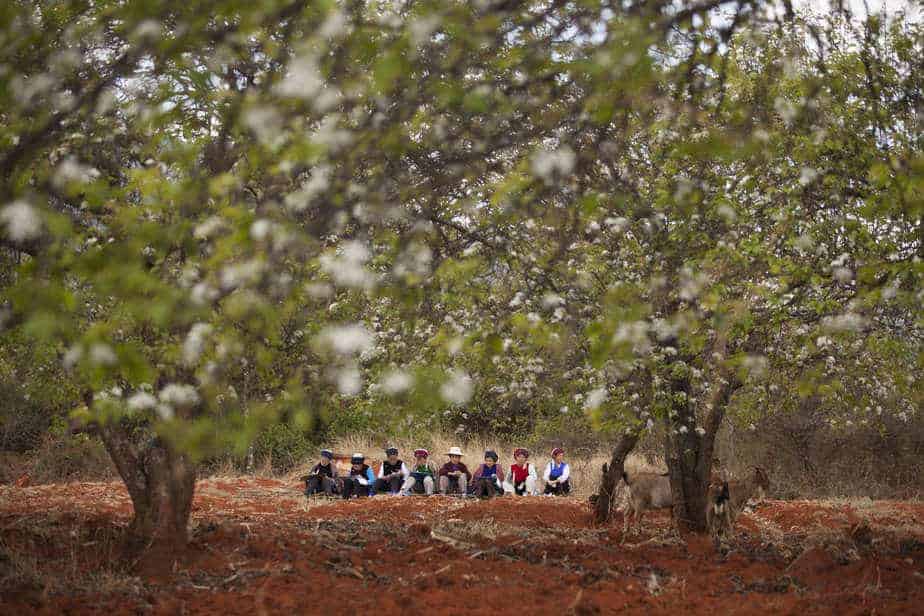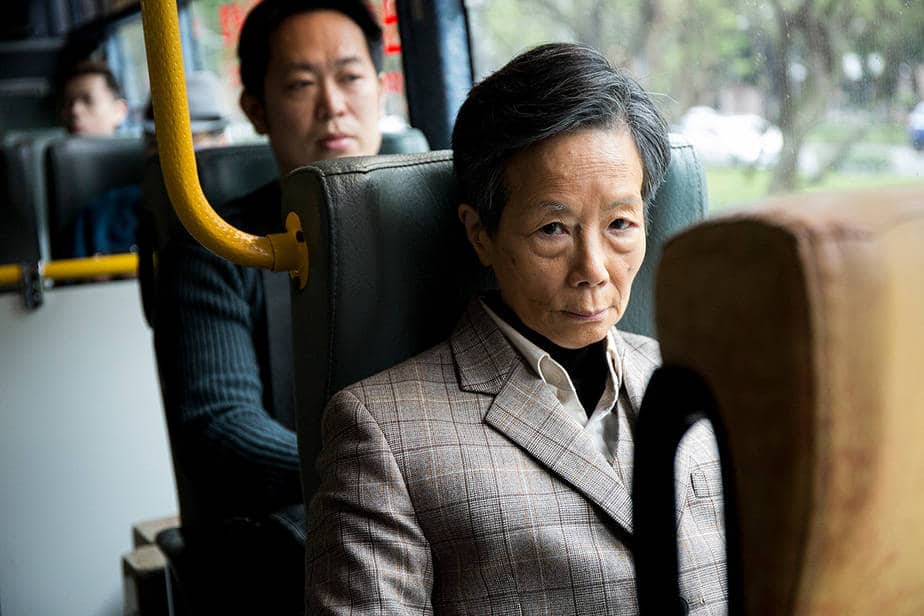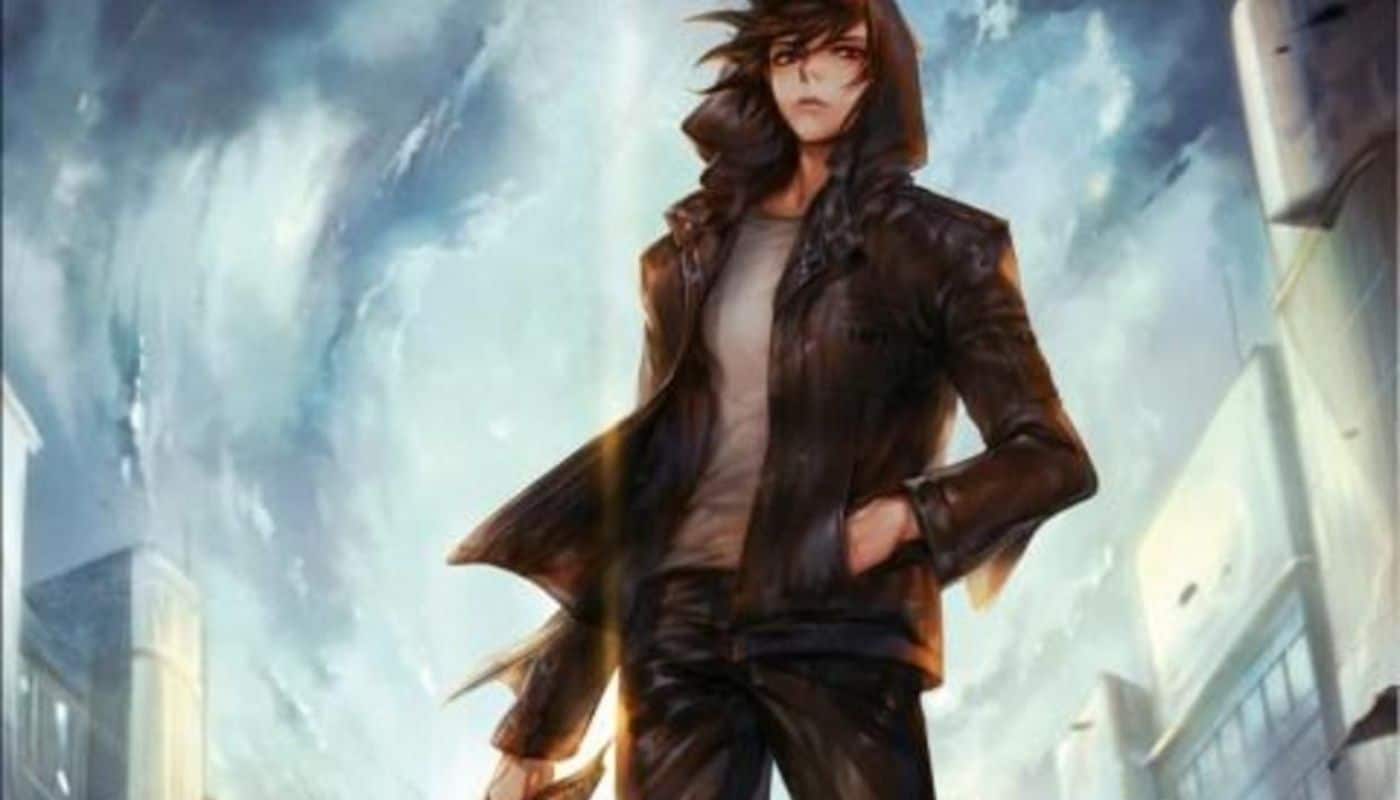“Papaya Salad” is the debut graphic novel by the Italian-Thai author and illustrator Elisa Macellari. First published in 2018 in Italian, it was finally translated in English in 2020 by Dark Horse.
Buy This Title
The novel takes a pretty widespread in recent years approach, that of the history from the ground up, and uses it to tell the story of the world before and after WWII, through the eyes of the author's great-uncle Sompong. A gifted student of languages, he is chosen to be the first Thai student to attend a German military school. Yet, he seems to be out of luck, for his departure is to happen immediately before Germany declares war on Poland. Sadly, his plan is cancelled by the big powers a world over and he has to learn Italian and go to Italy, instead. There he witnesses the ascendance of fascism and the toll of war on the Asians living in Europe during that time. After the war, he is taken as a political prisoner because Thailand is an ally to Japan.
Through Sompong's life in Europe, Macellari manages to create a story that is both very personal, yet universal. A story that shows us the maturation of a precarious young man during one of the most tumultuous times in history. The young Sompong witnesses some of the most notable and notably despicable occasions of the 20th, century both as an external observer (he is a foreigner both in Italy and Germany), but also as a participant. Or, rather, an unsuspecting one, as his country has chosen to ally itself with Imperial Japan, and together with it – with Nazi Germany and Fascist Italy. This makes Sompong an unsuspecting enemy by proxy and a prisoner of war for things that he has never done, for something he's never been an actual part of.
This last aspect of the book shows very poignantly the cruelty of war and of its victors. Sompong and the other Thai living in Europe are lumped with the Japanese, spat on and humiliated, simply because their country has been forced to help the empire. Or even worse, just because they are non-European. For apart from being victors at the war against the Nazis, the Allies are as bigoted and racist as their enemies. Macellari shows this through extended and repeated scenes of white soldiers humiliating the young Sompong and confusing him for a Japanese. After all, for them all of the “yellows” are the same. Yet, thorough all of this, he keeps his calm and his compassion for the captors, making him a much more mature than they are and will possibly ever be.
“Papaya Salad” is beautiful not only narratively, but visually too. Macellari's somewhat whimsical and colorful drawings breathe life to Sampong's adventures in Europe. They also manage to portray his internal life in a very subtle, yet poignant way, helping the readers connect even more to the already relatable character. We see both the external world, but also his internal one, helping us make more sense of the mess and insanity that were the pre- and post-WWII years.
Elisa Macellari's debut “Papaya Salad” is a beautiful and touching biographical graphic novel about a young man out of place during a time of worldwide confusion. As such, it is a very timely story that manages both to apply to our current situation, but also to shine a light on an ignored aspect of recent history.


